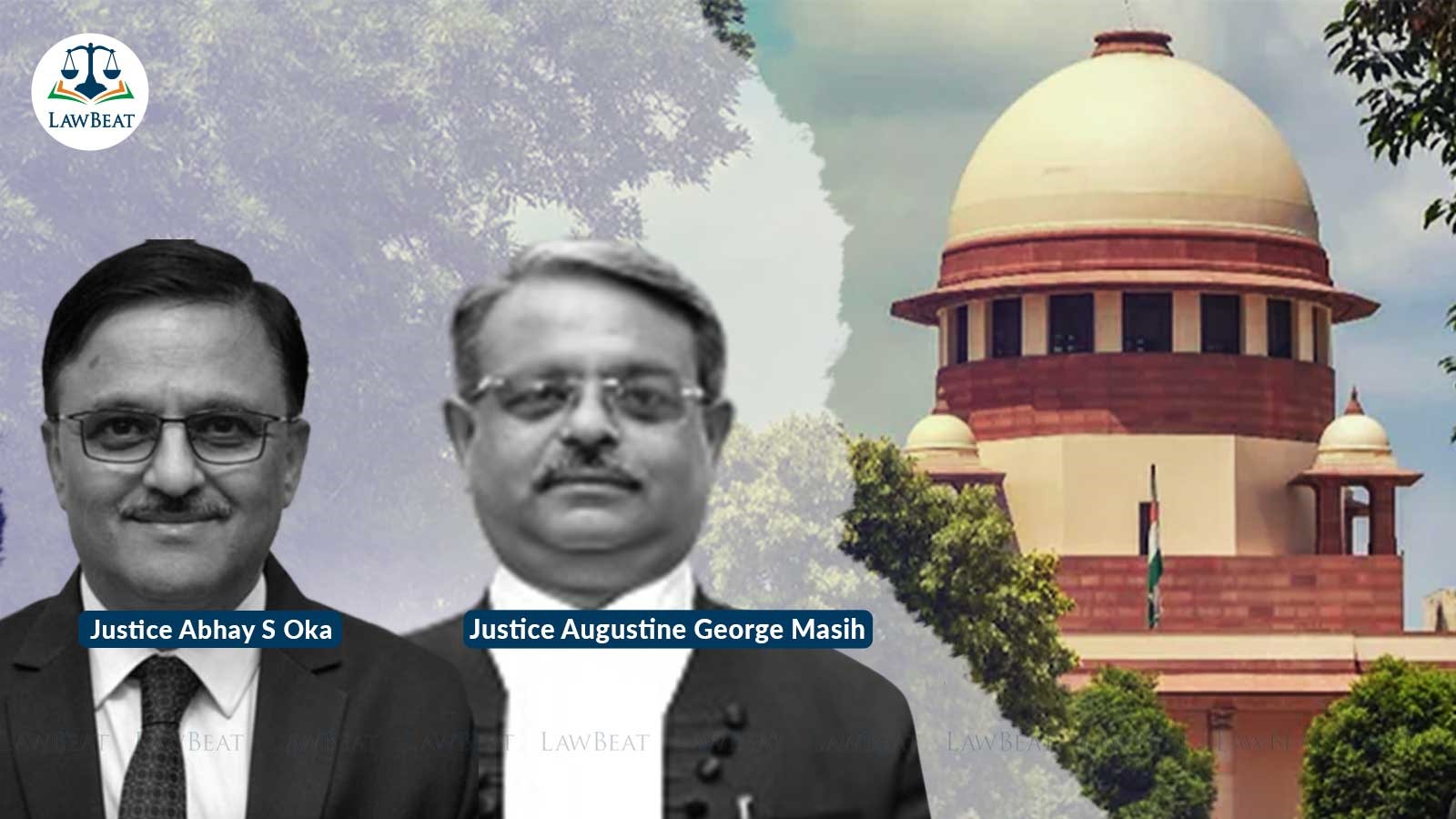SC Sets Aside Orders Reinstating Doctors Fired For Long-Term Absenteeism

Court felt the order of reinstatement would be inappropriate considering the conduct of the respondents of remaining absent from duties for a few years
The Supreme Court on December 19, 2024, allowed a plea by the Uttar Pradesh government against the Allahabad High Court's order which directed for the reinstatement of a group of doctors, dismissed from service for their long absenteeism, even though they had filed an application for voluntary retirement.
A bench of Justices Abhay S Oka and Augustine George Masih objected to the conduct of the state government in keeping the applications filed by the doctors pending but found no justification for the High Court to order reinstatement with all consequential benefits.
"Therefore, the interests of justice would be served by setting aside the order of termination dated 3rd May 2010, and by directing the appellants to accept an application for VRS with effect from the date of the order of termination. There is nothing on the record to show that after 3rd May, 2010, there was no source of livelihood for the respondents who are doctors," the bench said.
The court proposed to direct that the respondent-doctors will not be entitled to pension till the date of the present order. "However, the respondents would be entitled to refixation of their pension on the basis of VRS with effect from 3rd May, 2010, if the pension is otherwise payable," the bench said.
On May 3, 2010, an order was passed by the state government in the exercise of powers under clause (b) of the second proviso to Article 311(2) of the Constitution. By the said order, the employment of the respondents, along with more than four hundred other doctors, was terminated.
On the doctors' writ petitions, the High Court quashed the order of termination, and directed for their reinstatement with all the consequential benefits. The High Court also held that in the facts of the case, clause (b) of the second proviso to Article 311(2) of the Constitution was not applicable and that the appellants had failed to prove that it was not reasonably practicable to hold a disciplinary enquiry.
In its contention, the state government submitted that the respondents remained absent from the duties for more than 2 to 3 years. It submitted that considering the fact that a few thousand doctors took recourse to absenteeism from the order of termination of May 3, 2010 itself, it was apparent that it was impracticable to conduct a disciplinary enquiry against the defaulting doctors.
The counsel submitted that the grievance in the petitions filed before the High Court was essentially about the failure of the appellants to pass orders on the applications for VRS. In such petitions, there was no occasion to pass an order of reinstatement considering the conduct of the respondents.
The doctors' counsel submitted the appellants kept applications for VRS filed by them pending without taking any decision thereon for an unreasonably long time. The decision taken on the applications made by the respondents was never conveyed to them. Without deciding the applications seeking VRS, the State Government initiated proceedings for termination from service. The counsel submitted that the order of termination was illegal as clause (b) of the second proviso to Article 311(2) was not applicable to the facts of the case.
Going by the facts of the matter, the bench noted no reason was forthcoming for keeping the applications pending for such a long time.
"It is true that the conduct of the appellants in not deciding the applications for VRS cannot be supported at all. However, there was no reason for the respondents to take recourse to absenteeism. When the respondents found that their applications were not decided within a reasonable time, they could have adopted remedies in accordance with the law. But, in any event, the appellants ought to have decided the VRS applications within a reasonable time. But that was not done," the bench said.
The court also noted that some of the doctors had already reached the age of superannuation.
"However, there was no justification for the High Court to pass an order of reinstatement with all consequential benefits. The most appropriate order would have been to direct the appellants to decide the applications for the grant of VRS. Now, it is too late in the day to do that, as a period of more than 16 years has elapsed from the dates on which applications for VRS were made. At the same time, the order of reinstatement would be inappropriate considering the conduct of the respondents of remaining absent from duties for a few years," the bench said.
Exercising its jurisdiction under Article 142 of the Constitution to do complete justice between the parties in peculiar facts of the case, the bench allowed the applications made by the doctors for the grant of VRS and substituted the termination by an order of their voluntary retirement.
Court made it clear that the doctors will not be entitled to arrears of salary or any monetary benefits, including pension, if otherwise payable till the date of this order.
"We direct the appellants to release monetary benefits to the respondents within a period of three months from today. However, pension, if any payable, shall be fixed by treating the date of voluntary retirement as May 3, 2010. The pension shall be payable from the date of this order," the bench said.
Case Title: State of UP & Ors Vs Sandeep Agarwal
